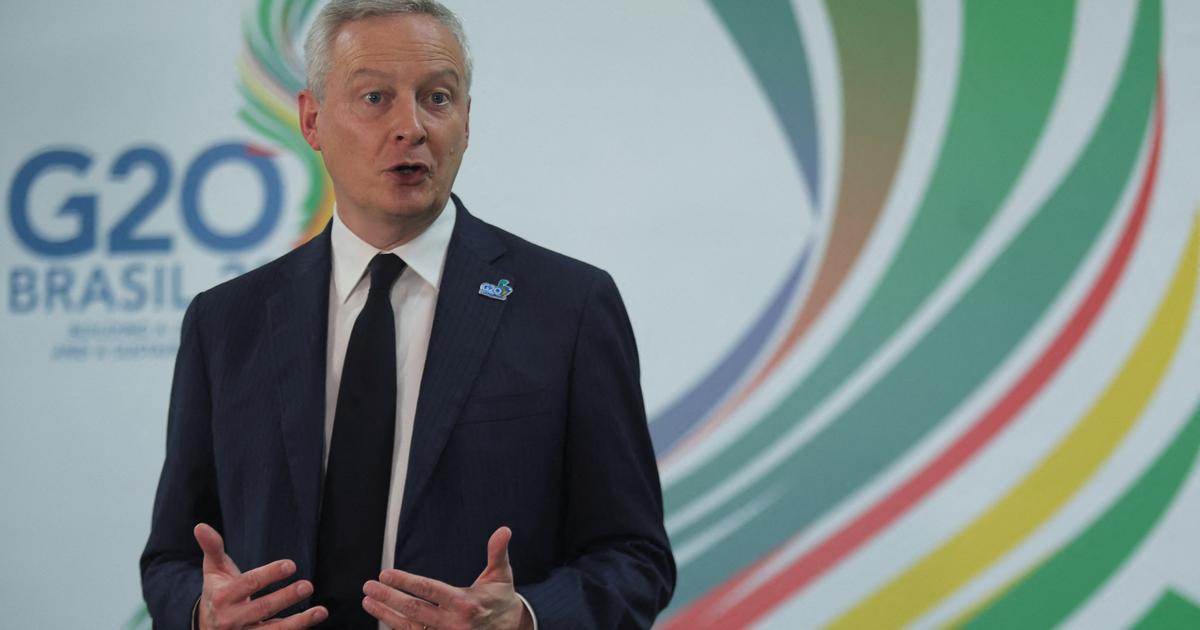Germany and France increased the pressure again on Wednesday to quickly finalize international negotiations on a tax of at least 15% of the profits of multinationals, a rate that is not entirely unanimous in Europe.
Read also: Minimum global tax: compromise in sight
All the planets seemed aligned last Friday after the United States had put forward this new proposal, more likely to win support than the rate of 21% mentioned so far. Alas, the Minister of Finance Paschal Donohoe, who is also the president of the Eurogroup, the cenacle of the big money-makers of the euro zone, threw a cold Tuesday by declaring that his country did not intend to give up its corporate tax rate, which is 12.5%.
Ireland is not the only country in Europe to have bet on favorable taxation for companies.
"Like Ireland, Hungary is in favor of a low level of taxation"
, reacted on Tuesday the Hungarian Foreign Minister Peter Szijjarto, whose country applies a rate of 9% and who was just visiting Dublin. In comparison, France and Germany apply a rate close to 30%, according to calculations made by the OECD. As for Luxembourg, chosen land for multinationals, its Minister of Finance Pierre Gramegna said he was in favor of
"minimum taxation" in
order to create
"conditions for fair competition"
between countries, without commenting on the rate. .
Can these differences in Europe really derail the negotiations that have been underway for four years under the aegis of the Organization for Economic Co-operation and Development (OECD)?
"There is clearly an opportunity to reach a historic agreement at the next G7 next week"
in London
"and at the next G20 in early July"
in Venice, French Economy Minister Bruno Le Maire said on Wednesday, sweeping aside fears of a blockage of discussions which do not only involve the European Union, but 136 countries in total.
"We are very close to concluding an agreement"
which will lead to
"a revolution in international corporate taxation"
, added his German counterpart Olaf Scholz.
"Deleterious spiral"
Until now, multinationals were free to choose the country where they wanted to be taxed.
The reform should oblige them to pay taxes in each of the countries where they generate significant profits.
"Our consistent position is that where taxes are paid matters and that any deal must ensure that digital businesses pay UK taxes that reflect their economic activities,"
a UK Treasury spokesperson responded to Wednesday. from AFP.
"This is what our taxpayers expect and it is the right thing to do for our public services"
, he added - and this while the United Kingdom is currently chairing the G7, one of the forums where this reform is being discussed. The Netherlands, which has nevertheless succeeded in attracting many multinationals thanks to their deemed advantageous taxation, are also on this line.
The pandemic, by emptying the public coffers, accelerated the realization that the general race to the lowest tax bid was no longer tenable.
“What Biden has done, and we can expect this to happen in Europe as well, is to say: 'we need investments to support the recovery (...), we need 'money, tax revenue,' ”
Dutch MEP Paul Tang, who heads the committee in charge of combating tax evasion in the European Parliament, told AFP.
However,
"in forty years, the average rate of corporate tax on a global scale has been halved, from 45% to 20%"
, noted in February the economist Gabriel Zucman in an interview with Le Monde .
"This deleterious spiral enriches the big winners of globalization, namely multinationals and their shareholders"
, added this professor at the University of Berkeley, calling for
"to get out of this logic"
.
According to the NGO Tax Justice Network, which relies on figures from the OECD, European countries lost, due to corporate tax evasion, nearly $ 80 billion in tax revenue in 2020. Of which 14 billion dollars just for France.















